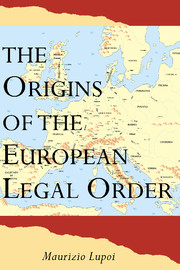Book contents
- Frontmatter
- Contents
- List of abbreviations
- 1 The early Middle Ages: a comparative approach
- 2 A historical and institutional profile of the Roman empire in the fourth and fifth centuries
- 3 Excursus I: ‘Barbarians’
- 4 Historical and institutional profiles of the ‘new dominations’
- 5 Excursus II : The days of the week
- 6 Excursus III: Anglo-Saxon charters
- 7 Consensus by assembly
- 8 Excursus IV: Authority and consensus in judicial decisions
- 9 Public allegiance
- 10 Excursus V: The Anglo-Saxon writ
- 11 Private allegiance
- 12 Open legal systems
- 13 Excursus VI: Textual ‘coincidences’ in documentary forms
- Chronology of popes and sovereigns
- Appendix of sources
- Bibliography
- Index
8 - Excursus IV: Authority and consensus in judicial decisions
Published online by Cambridge University Press: 04 February 2010
- Frontmatter
- Contents
- List of abbreviations
- 1 The early Middle Ages: a comparative approach
- 2 A historical and institutional profile of the Roman empire in the fourth and fifth centuries
- 3 Excursus I: ‘Barbarians’
- 4 Historical and institutional profiles of the ‘new dominations’
- 5 Excursus II : The days of the week
- 6 Excursus III: Anglo-Saxon charters
- 7 Consensus by assembly
- 8 Excursus IV: Authority and consensus in judicial decisions
- 9 Public allegiance
- 10 Excursus V: The Anglo-Saxon writ
- 11 Private allegiance
- 12 Open legal systems
- 13 Excursus VI: Textual ‘coincidences’ in documentary forms
- Chronology of popes and sovereigns
- Appendix of sources
- Bibliography
- Index
Summary
The subject of this excursus
One of the cornerstones of my comparative view of the European early Middle Ages is that the search for consensus was one of the principal purposes of every form of legal behaviour. We have seen that Charlemagne himself dispatched his missi to read new dispositions in public in order to receive the approval of his subjects, who would subscribe to them in the mallus. We shall see in Chapter 9 the exaggerated use made of oaths of allegiance, while elsewhere I shall seek to show the frequency of settlements in court. In this excursus I shall attempt to demonstrate that judges throughout Europe took care to surround themselves with other personages whose names they recorded in their report on the case; and furthermore that the extent of consensus is attested by formulas which stress the large numbers attending the hearing in the twofold capacity of witnesses and participants (it often happens that trial records make no distinction between the two).
Royal courts well attended
The courts of the Merovingian kings in the middle of the seventh century were dominated by the comes palatii, who had the status of vir inlustet - the same status given to the king in preambles to documents. The court consisted of the bishops and various categories of officials, nobles and optimates in general. The vagueness of the terminology highlights the breadth of consensus even when the names of individuals are not recorded.
- Type
- Chapter
- Information
- The Origins of the European Legal Order , pp. 224 - 231Publisher: Cambridge University PressPrint publication year: 2000



